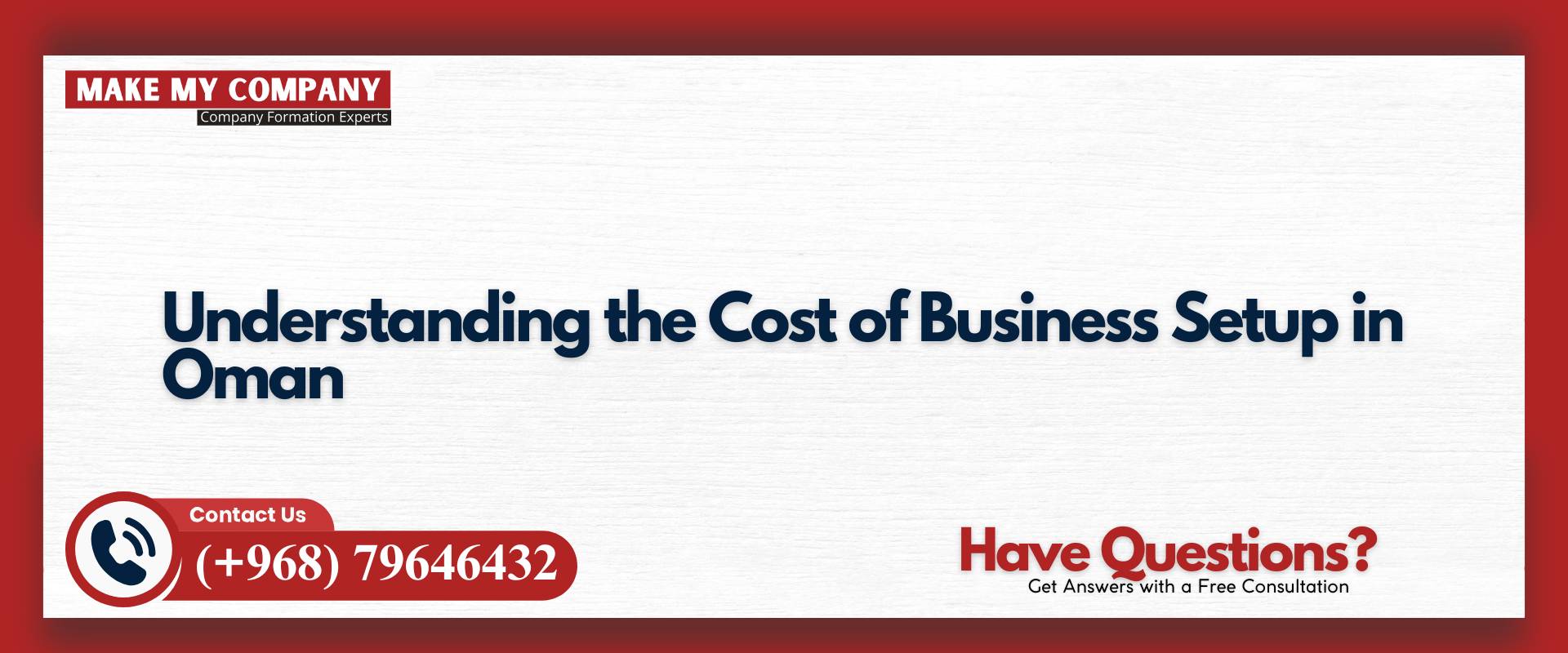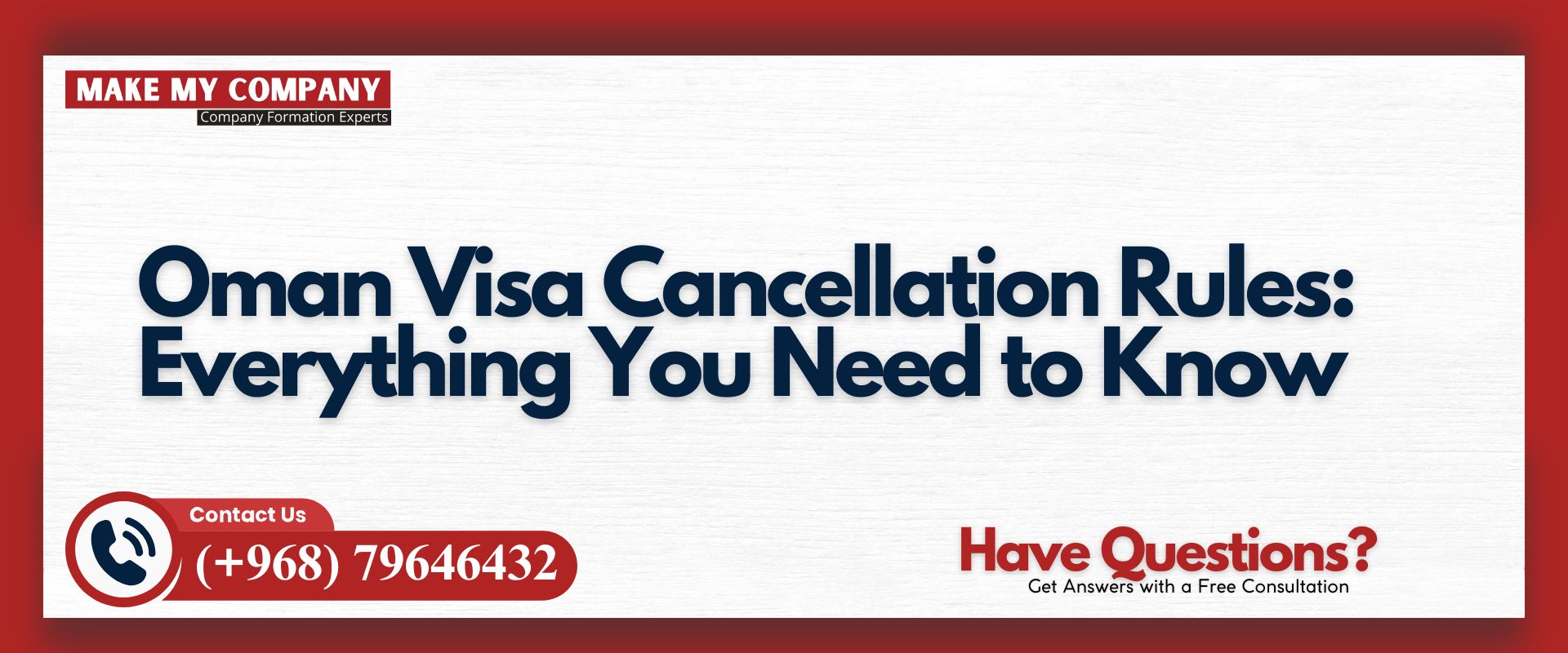Table of Contents
- Introduction
- Legal Requirements for Business Setup
- Types of Business Entities in Oman
- Cost Considerations for Business Setup
- Registration and Licensing Fees
- Office Space and Rental Costs
- Employee Costs and Benefits
- Utilities and Infrastructure Expenses
- Taxation and Accounting Costs
- Conclusion
- Frequently Asked Questions (FAQs)
- Introduction
Setting up a business in Oman can be a lucrative opportunity for entrepreneurs and investors looking to tap into the thriving Middle Eastern market. However, before embarking on this venture, it is crucial to understand the cost considerations involved in a business setup. In this article, we will explore the various aspects contributing to the overall cost of establishing a business in Oman, including legal requirements, registration fees, office space expenses, employee costs, utilities, taxation, and accounting fees.
Legal Requirements for Business Setup
To establish a business in Oman, it is essential to comply with the government’s legal requirements. The first step is determining your business entity’s appropriate legal structure. The options include a sole proprietorship, partnership, limited liability company (LLC), joint-stock company (SAOC), or branch office of a foreign company.
Each business entity has its own set of regulations and requirements. For example, an LLC requires a minimum of two shareholders and a capital investment of OMR 20,000. On the other hand, a branch office of a foreign company must appoint a local agent and provide relevant documents such as a certificate of incorporation, memorandum, and articles of association.
Types of Business Entities in Oman
To better understand the cost implications, let’s delve into the different types of business entities in Oman:
Sole Proprietorship
A sole proprietorship is the simplest and most cost-effective form of business setup. As the sole owner, you have complete control and responsibility for your business. The setup costs are minimal, primarily involving registration fees and obtaining necessary permits.
Partnership
Partnerships are formed when two or more individuals establish a business. The costs associated with partnerships depend on the legal structure chosen, such as a general partnership or a limited partnership. Registration fees, drafting partnership agreements, and obtaining necessary licenses contribute to the overall setup costs.
Limited Liability Company (LLC)
An LLC offers limited liability protection to its shareholders while allowing flexibility in management. The setup costs for an LLC include the following:
- Capital investment.
- Registration fees.
- I am drafting the articles of association.
- I am obtaining approvals from the Ministry of Commerce and Industry.
Joint-Stock Company (SAOC)
A joint-stock company suits larger businesses planning to raise capital through public offerings. The setup costs for an SAOC involve the following:
- Minimum capital requirements.
- Registration fees.
- I am drafting the articles of association.
- I am obtaining the necessary approvals from regulatory bodies.
Branch Office of a Foreign Company
Foreign companies looking to establish a presence in Oman can set up a branch office. The costs associated with this option include:
- We are appointing a local agent.
- I am obtaining the necessary approvals from government authorities.
- We are providing relevant documents from the parent company.
Cost Considerations for Business Setup
When planning for business setup in Oman, several cost considerations must be considered. Here are the key factors to consider:
Registration and Licensing Fees
To legally operate your business in Oman, you must register with the appropriate authorities and obtain the necessary licenses. The registration fees vary depending on the business entity, ranging from a few hundred Omani Rials to several thousand.
Office Space and Rental Costs
Finding suitable office space is crucial for your business operations. The rental costs depend on location, size, and facilities provided. Muscat, the capital of Oman, offers a range of commercial spaces, but prices can be higher than in other regions.
Employee Costs and Benefits
Hiring and retaining skilled employees is a significant investment for any business. In Oman, labor costs include salaries, social security contributions, medical insurance, and end-of-service benefits. It is important to comply with labor laws and provide competitive compensation packages to attract and retain talented individuals.
Utilities and Infrastructure Expenses
Running a business requires access to essential utilities such as electricity, water, and internet services. The costs associated with utilities and infrastructure depend on the size and nature of your business. Additionally, investing in technology infrastructure, such as computer systems and software, is important.
Taxation and Accounting Costs
Oman has a favorable tax environment, with no personal income tax for individuals and a low corporate tax rate. However, businesses must maintain proper accounting records and submit annual financial statements. Employing the services of a professional accountant or accounting firm ensures compliance with tax regulations and reduces the risk of penalties.
Registration and Licensing Fees
The registration and licensing fees for business setup in Oman vary depending on the legal structure and business activity. Here is an overview of the typical fees:
- Sole Proprietorship: Registration fees range from OMR 50 to OMR 500, depending on the nature of the business activity.
- Partnership: Registration fees and additional charges for drafting partnership agreements can range from OMR 500 to OMR 1,000.
- LLC: The registration fees for an LLC range from OMR 300 to OMR 1,000, depending on the share capital.
- SAOC: The registration fees for an SAOC start from OMR 1,000 and can vary based on the share capital and business activity.
- Branch Office: The registration fees for a branch office can range from OMR 1,000 to OMR 5,000, depending on the business activity.
It is important to note that these fees are approximate and may vary based on specific circumstances and regulatory changes.
Office Space and Rental Costs
The cost of office space in Oman depends on the location and the type of premises, in Muscat, the capital city, prime commercial areas like Al Khuwair and Qurum command higher rental rates than other regions.
On average, the rental costs for office space in Muscat range from OMR 6 to OMR 12 per square meter per month. For example, a 100-square-meter office can cost between OMR 600 and OMR 1,200 monthly. Consider the needs of your business and budget accordingly.
Employee Costs and Benefits
Employing a skilled workforce is essential for business success. The Oman employees’ costs include salaries, social security contributions, medical insurance, and end-of-service benefits. The salary range varies depending on the industry, job role, and experience level.
As an employer, you are also responsible for providing mandatory benefits such as annual leave, sick leave, and gratuity payments. It is crucial to adhere to labor laws and compensation guidelines to ensure compliance and maintain a motivated workforce.
Utilities and Infrastructure Expenses
The cost of utilities and infrastructure depends on the specific requirements of your business. In Oman, the rates for electricity and water are reasonable. However, heavy energy-consuming industries may incur higher costs. Investing in reliable internet services and necessary technology infrastructure is crucial for efficient business operations.
Taxation and Accounting Costs
Oman offers a favorable tax environment for businesses. The corporate tax rate is set at 15% on taxable income. However, certain industries may enjoy exemptions or reduced tax rates based on government incentives.
To ensure compliance with tax regulations, it is advisable to engage the services of a professional accountant or accounting firm. They can assist with bookkeeping, preparing financial statements, and submitting tax returns accurately and on time.
Conclusion
Understanding the cost considerations involved in a business setup is vital for entrepreneurs and investors planning to establish a presence in Oman. Each aspect contributes to the overall financial commitment, from legal requirements and registration fees to office space expenses, employee costs, utilities, and taxation.
You can make informed decisions that align with your business goals by carefully evaluating these costs, seeking professional guidance, and conducting thorough market research. With proper planning and strategic budgeting, you can successfully navigate the business setup process in Oman and position your venture for growth and profitability.
Frequently Asked Questions (FAQs)
What are the legal requirements for setting up a business in Oman?
A1: The legal requirements for business setup in Oman include choosing the appropriate legal structure, meeting the minimum capital requirements, obtaining necessary approvals from government authorities, and providing relevant documents.
What is the cost of registering a sole proprietorship in Oman?
The registration fees for a sole proprietorship can range from OMR 50 to OMR 500, depending on the nature of the business activity.
How much does it cost to rent office space in Muscat?
The rental costs for office space in Muscat typically range from OMR 6 to OMR 12 per square meter per month, depending on the location and size of the premises.
What are the employee costs in Oman?
Employee costs in Oman include salaries, social security contributions, medical insurance, and end-of-service benefits. The salary range varies based on the industry, job role, and experience level.
Are there any tax benefits for businesses in Oman?
Oman has a favorable tax environment, with a low corporate tax rate of 15% on taxable income. Certain industries may also enjoy exemptions or reduced tax rates based on government incentives.
Should I hire an accountant for my business in Oman?
Engaging the services of a professional accountant or accounting firm is recommended to ensure compliance with tax regulations, maintain accurate financial records, and submit tax returns on time.
Note: The cost figures mentioned in this article are approximate and may vary based on specific circumstances and regulatory changes.









